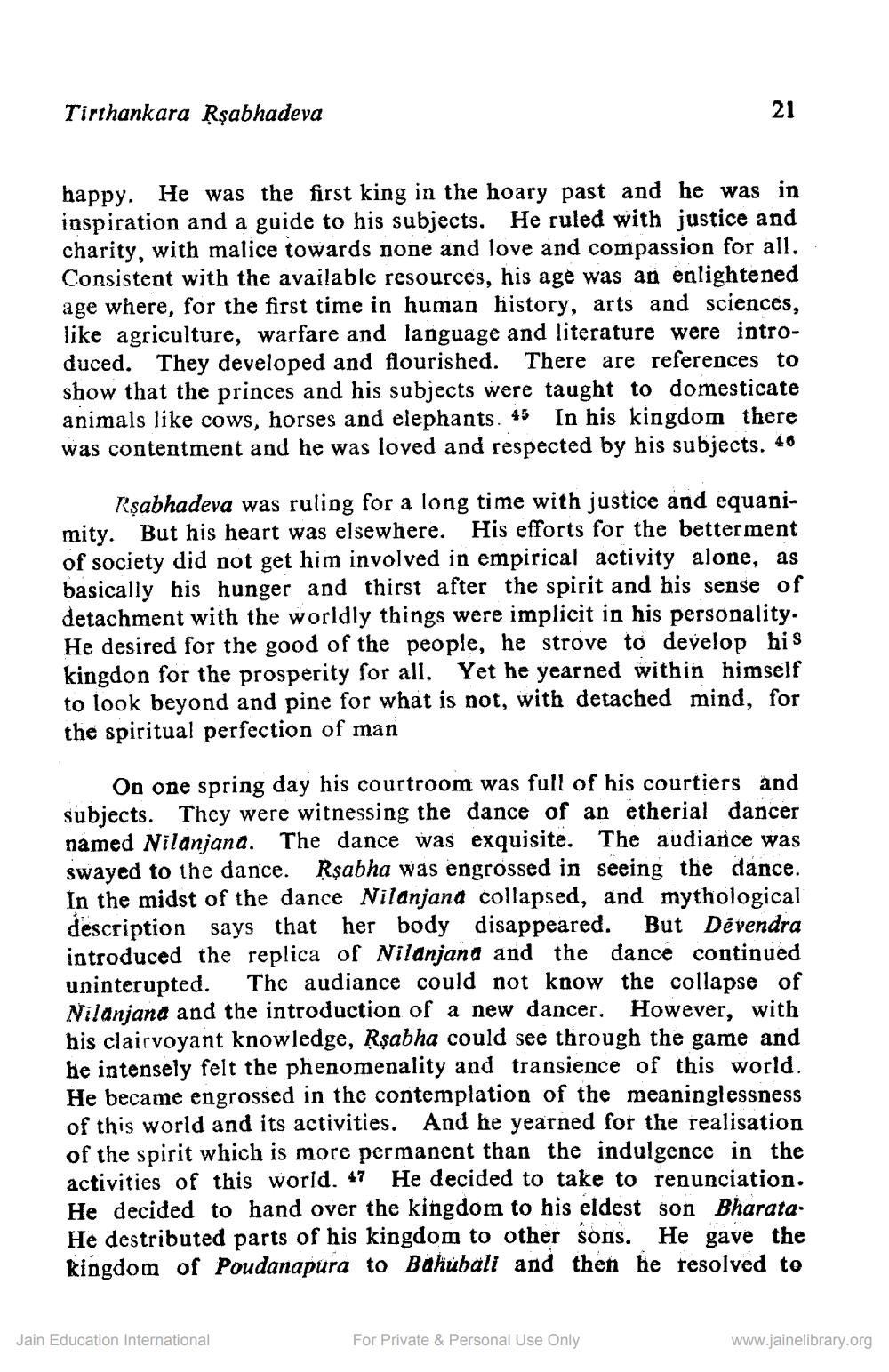________________
Tirthankara Rṣabhadeva
happy. He was the first king in the hoary past and he was in inspiration and a guide to his subjects. He ruled with justice and charity, with malice towards none and love and compassion for all. Consistent with the available resources, his age was an enlightened age where, for the first time in human history, arts and sciences, like agriculture, warfare and language and literature were introduced. They developed and flourished. There are references to show that the princes and his subjects were taught to domesticate animals like cows, horses and elephants. 45 In his kingdom there was contentment and he was loved and respected by his subjects. 46
21
Rṣabhadeva was ruling for a long time with justice and equanimity. But his heart was elsewhere. His efforts for the betterment of society did not get him involved in empirical activity alone, as basically his hunger and thirst after the spirit and his sense of detachment with the worldly things were implicit in his personality. He desired for the good of the people, he strove to develop his kingdon for the prosperity for all. Yet he yearned within himself to look beyond and pine for what is not, with detached mind, for the spiritual perfection of man
On one spring day his courtroom was full of his courtiers and subjects. They were witnessing the dance of an etherial dancer named Nilanjana. The dance was exquisite. The audiance was swayed to the dance. Rṣabha was engrossed in seeing the dance. In the midst of the dance Nilanjana collapsed, and mythological description says that her body disappeared. But Devendra introduced the replica of Nilanjana and the dance continued uninterupted. The audiance could not know the collapse of Nilanjana and the introduction of a new dancer. However, with his clairvoyant knowledge, Rṣabha could see through the game and he intensely felt the phenomenality and transience of this world. He became engrossed in the contemplation of the meaninglessness of this world and its activities. And he yearned for the realisation of the spirit which is more permanent than the indulgence in the activities of this world. 47 He decided to take to renunciation. He decided to hand over the kingdom to his eldest son BharataHe destributed parts of his kingdom to other sons. He gave the kingdom of Poudanapura to Bahubali and then he resolved to
Jain Education International
For Private & Personal Use Only
www.jainelibrary.org




